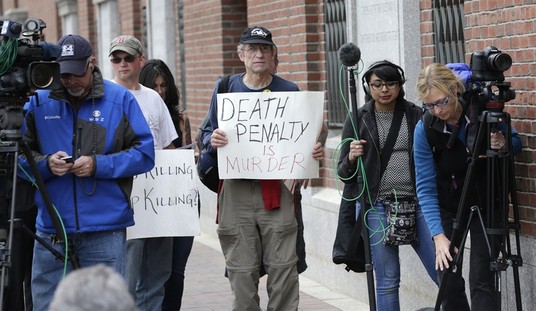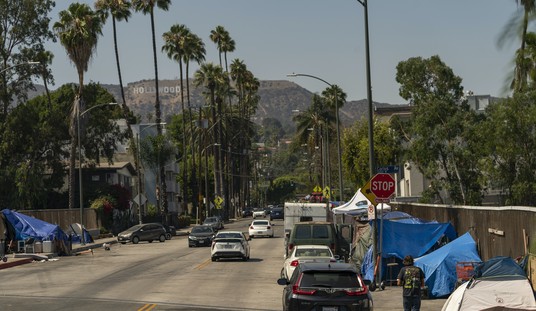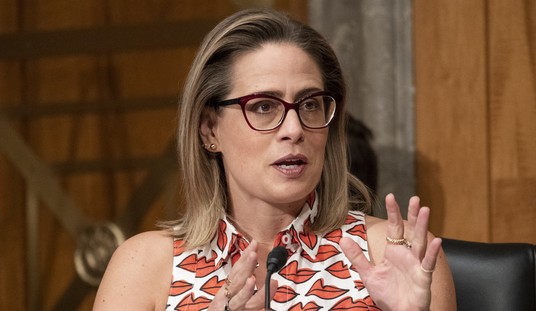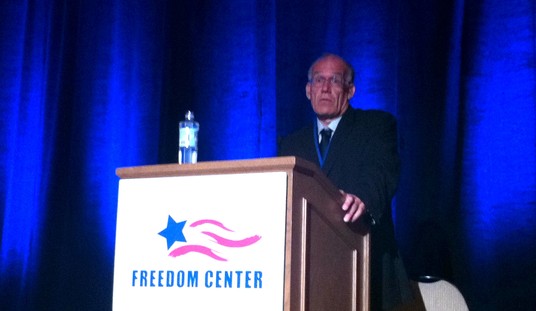Donald Trump had good reason to brag yesterday. The last ISIS pockets of resistance in their so-called capital of Raqqa have been squashed, leaving the terror group battered and beaten in detail.
Trump called the Raqqa victory a “critical breakthrough” and said “the end of the caliphate is in sight.” This is true. But instead of receding, the overall threat of Islamic terrorism is growing, including the reality that as ISIS is defeated in Iraq and Syria, it is rising in other areas.
The caliphate is gone and ISIS’s totalitarian ideology is stained, even among Sunni Muslims who first welcomed it. But extremism will find new breeding grounds in countries where sectarian loyalties dominate, where there is no work, where distrust is endemic and the “middle ground” doesn’t exist.
ISIS began as an insurgency; now it’s returning to its roots, which are spread deep across the region. The group’s most devastating recent attack in Iraq — in which more than eighty people were killed — was in a Shia town south of Baghdad, far from the ISIS heartland. It also has cells in Diyala and Anbar.
ISIS’ so-called “provinces,” however, remain — including a fully-fledged insurgency in Egypt’s Sinai desert, along with camps in Libya and Afghanistan. A relatively new ISIS affiliate was blamed for the killing of four US soldiers in Niger this month.
An ISIS-affiliated group in the Sinai ambushed a battalion of Egyptian security forces, outgunning and outfighting them while killing more than 50. Israel — which has been watching the situation deteriorate in next-door Sinai — is worried that fighters escaping defeat in Iraq and Syria will find a home in Egypt.
Perhaps even more worrying is the resurgence of al-Qaeda all across the region:
As ISIS loses ground, al Qaeda is eyeing opportunities in Syria. Within the last few weeks a new group has emerged from among jihadi factions in the northwest Syrian province of Idlib: Ansar al Furqan. Brett McGurk, the US envoy for the anti-ISIS coalition, has dubbed Idlib as the largest al Qaeda haven since the days of Osama bin Laden.
“As these highly experienced AQ veterans still sit in Syria, situated within masses of frustrated jihadists and a growing void of hardliner leadership, only a fool would think that AQ is sitting idly by,” concludes the SITE Intelligence Institute, which tracks jihadi movements.
Al Qaeda also has a new flag-bearer: Hamza bin Laden, son of Osama, whose appeal to a new generation of jihadis is growing.
Iran is also a beneficiary of the chaos.
Hardliners in Iran are emboldened by US President Donald Trump’s decision not to recertify the 2015 nuclear agreement. Saudi officials say they expect a new campaign of sabotage by Tehran, in the Kingdom’s predominantly Shia eastern province and in cyberspace.
A senior general in Iran’s Revolutionary Guards, Qassem Suleimani, visited the Iraqi city of Kirkuk last week to meet one Kurdish faction, the Patriotic Union of Kurdistan. Days later, the PUK left the disputed city rather than fight the Iraqi army and the pro-Iranian Shia militia known as the Hashd al-Shaabi.
The Hashd have also occupied Sinjar, the homeland of the Yazidi minority in northern Iraq that has suffered so much at the hands of ISIS. The Iranian dream of linking Tehran, Baghdad, Damascus and Beirut in an arc of Shia influence has come a few steps nearer.
The definition of a “hardliner” in Iran is someone who hates America and Israel a little less than the next fellow. It’s an absurd statement to say that “hardliners” in Iran will benefit from Trump’s decertification of the nuclear deal when the term itself is irrelevant.
Regardless, the war against ISIS in Syria may be ending, but the rebellion against President Assad continues. But now, the main body of rebel fighters will be radical Islamists. Any chance that Assad would step down in favor of a negotiated settlement is gone for good. There’s no way he will turn the country over to terrorists.
Shifting alliances, western confusion, and the rise of Turkish meddling in the region are working to strengthen the forces of terrorism. This means more destruction and devastation, more refugees, and a growing threat against the U.S. by terrorist groups old and new.










Join the conversation as a VIP Member